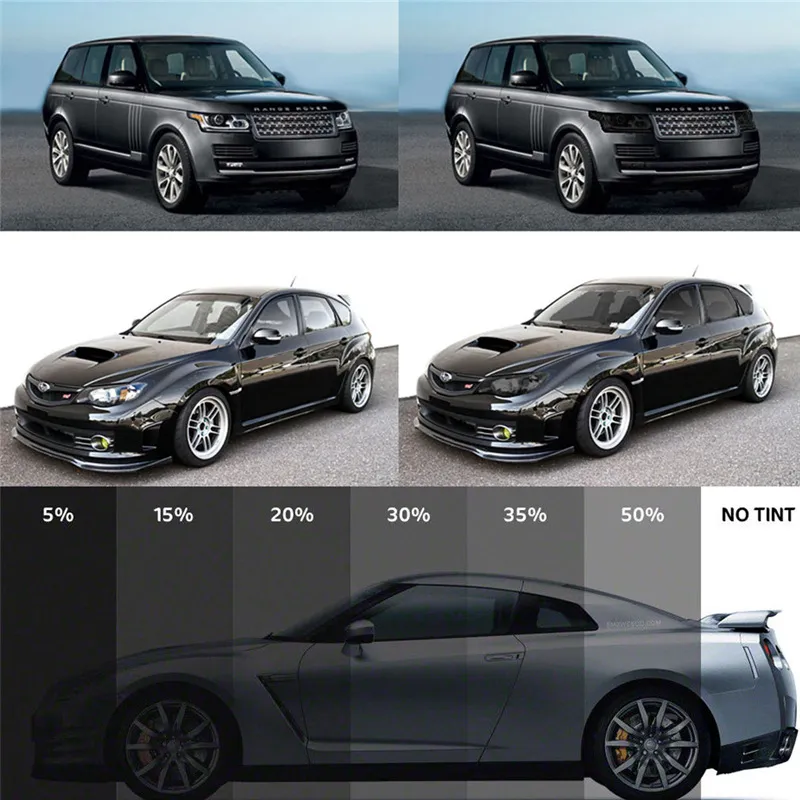How Window Tinting Enhances Your Car's Appearance and Protects Its Interior
How Window Tinting Enhances Your Car's Appearance and Protects Its Interior
Blog Article
Window Tinting Laws: What You Need to Know Before Tinting Your Automobile
Understanding window tinting regulations is vital for any type of car owner taking into consideration tinting their auto. Rules differ considerably from state to state, establishing details restrictions for Visible Light Transmission (VLT) percentages, particularly for front-side home windows and windshields. Failure to follow these legislations can result in fines, the requirement to eliminate the tint, and issues with insurance policy. As you consider improving your automobile's look and functionality, it is crucial to grasp not only the legal effects however likewise the useful factors to consider that include choosing the appropriate tint. What aspects should you focus on in your decision-making procedure?
Relevance of Understanding Tint Regulations
Comprehending home window tinting legislations is essential for automobile owners to make sure conformity with state regulations. These laws determine the acceptable degrees of color darkness and reflectivity, which can significantly differ from one jurisdiction to another. Falling short to adhere to these laws can cause fines, required removal of the tint, and possible complications during automobile inspections.
Moreover, understanding these legislations helps automobile proprietors make informed choices regarding their tinting alternatives. Different kinds of window movies provide various advantages, such as UV protection, warm being rejected, and glare decrease. Without knowledge of the lawful restrictions, lorry owners risk selecting products that might ultimately lead to legal concerns.
Furthermore, recognition of tinting legislations fosters a safer driving environment. window tinting. Exceedingly dark colors can impair visibility, enhancing the risk of accidents, particularly during the night or in negative weather. Legislation enforcement agencies additionally utilize these regulations to make sure roadway safety and security, making conformity not just a personal obligation but a legal responsibility
State-Specific Color Laws
Each state in the U.S. has actually established its own particular guidelines concerning home window tinting, reflecting a diverse variety of criteria and needs. These regulations can vary significantly, affecting exactly how automobile proprietors approach setup and conformity. For example, some states enable darker colors on back windows while imposing stringent limits on front-side windows.
Additionally, guidelines often define permitted color products and shades. Particular states forbid reflective colors completely, while others might enable them to a limited degree. Furthermore, some jurisdictions mandate that vehicles with colored home windows present a sticker label suggesting compliance with state laws, providing a clear identification for police.
Enforcement of these laws also differs; some states are more aggressive, performing arbitrary checks, while others depend on grievances or visible infractions to start enforcement. Car owners need to be mindful that failing to adhere to state-specific tint regulations can bring about fines, compulsory removal of illegal colors, or both.

Legal Color Percentages
Identifying the legal color percents is vital for vehicle owners looking for to abide by state guidelines. Each state has specific legislations regulating just how much light should pass via the windows of a vehicle, which is expressed as a percentage recognized as Noticeable Light Transmission (VLT) This portion differs considerably throughout states and can rely on the type of home window-- front side, rear side, and windshield.
As an example, some states allow as little as 20% VLT on front side windows, while others might allow approximately 50%. Windscreen tinting is usually more restricted, with many jurisdictions allowing just a narrow band of tint at the top of the windshield. In comparison, back windows usually have a lot more lenient laws, with some states allowing darker colors.
It is essential for lorry owners to familiarize themselves with their neighborhood regulations to prevent prospective legal problems. This consists of understanding exactly how VLT is gauged, as it can differ based on go to these guys the kind of window movie made use of. Remaining notified regarding these laws guarantees compliance and advertises safe driving conditions for both the vehicle proprietor and others when driving.
Effects of Non-Compliance
Falling short to abide by window tinting laws can lead to considerable effects for vehicle owners. One of the most prompt effect is the possibility for web traffic quits and citations from legislation enforcement. Officers educated to determine illegal tint levels may release penalties, which can vary by territory but frequently vary from modest to significant quantities. Repeated offenses might bring about boosted penalties, consisting of higher fines or additional factors on a motorist's license.

Insurer might also enforce fines for non-compliance, as prohibited alterations can be considered as a breach of policy terms. If an incident occurs., this can influence insurance coverage prices or lead to issues in insurance claims.
Eventually, the consequences of non-compliance extend past instant punitive damages; they can affect a motorist's insurance coverage prices, lawful standing, and general car worth, stressing the value of adhering to neighborhood window tinting laws.
Tips for Choosing Tinting Options
When choosing home window tinting options,Recognizing the ramifications of non-compliance highlights the significance of making educated choices. First of all, familiarize yourself with your state's specific legislations relating to color darkness and reflectivity. Each state has special regulations that determine the permitted limits, so ensure you remain within these guidelines to prevent fines.
Second of all, think about the kind of color material. Alternatives include dyed, metalized, and ceramic colors, each offering differing levels of heat being rejected, UV defense, and sturdiness. As an example, ceramic tints provide exceptional warmth resistance without hindering electronic gadgets, making them a prominent selection.
Additionally, evaluate your main function for tinting. If you look for enhanced privacy, select darker tints; the original source however, maintain in mind that this might impact presence in the evening. Alternatively, if glow reduction and UV defense are your main concerns, lighter tints might be sufficient.
Last but not least, seek advice from with a professional installer who is educated about neighborhood laws and can advise top notch materials matched to your demands (window tinting). Taking these variables right into account will certainly ensure you make an educated choice, ultimately enhancing both your vehicle's looks and performance
Conclusion
In verdict, experience with home window tinting laws is necessary prior to applying color to a vehicle. By comprehending lawful demands and choosing appropriate color products, car proprietors can accomplish visual enhancement while staying certified with relevant regulations.
Understanding window tinting legislations is essential for any automobile proprietor thinking about tinting their cars and truck.Understanding home window tinting legislations is important for vehicle owners to ensure compliance with state guidelines. Some states permit darker tints on rear home windows while imposing rigorous limitations on front-side windows.
In contrast, rear windows usually have more lenient policies, with some states permitting darker colors. (window tinting)
In conclusion, knowledge with window tinting laws is vital prior to applying color to an automobile.
Report this page